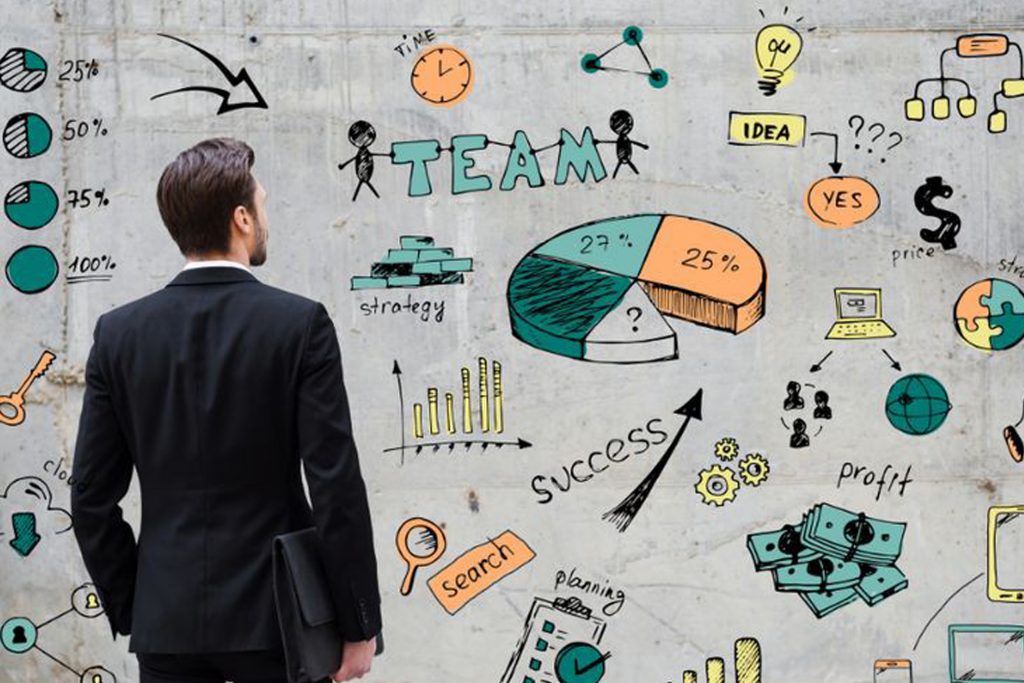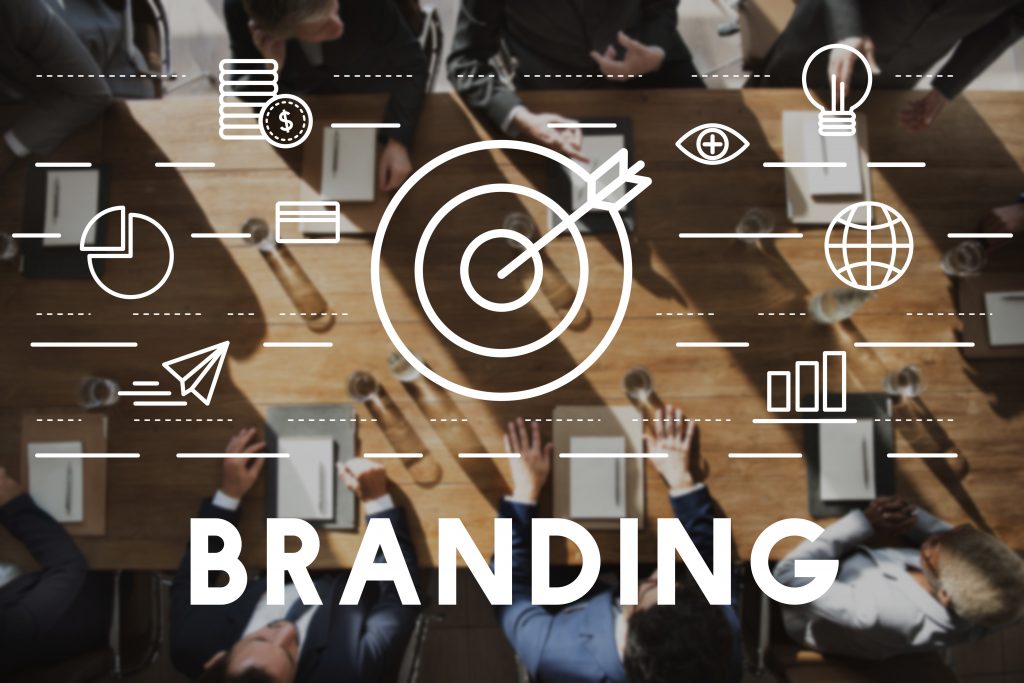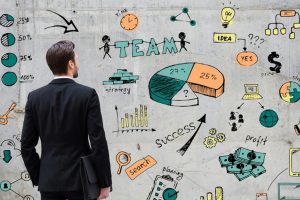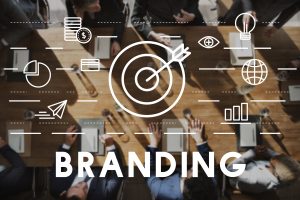

challenge workshop



sustainable career

a new generation of careers


industry




self-awareness




graduation





















Goals and Objectives
Abstract
Through the presentation, we will clarify the effect of assessment in the process of Recruitment. Assessing the skills and knowledge of individuals help in having ready profiles for employer. This may change the process of Recruitment.
Summary
We will present PTA Platform process, which depends on evaluating individuals and having ready profiles for employer who can sing in PTA and search for those suitable candidates. (pta-sa.com).

Goals and Objectives
Youth Innovation Business Challenge Workshop aims to inspire and empower young entrepreneurs by fostering creativity and innovative thinking. In this 3-hour interactive session, participants will learn the fundamentals of entrepreneurship, engage in brainstorming activities, and develop unique business ideas. The workshop will provide practical tools and guidance to help youth transform their ideas into viable business concepts. By the end of the session, participants will have a clear understanding of the entrepreneurial process, enhanced problem-solving skills, and the confidence to pursue their business ambitions.
Abstract
Join the Youth Innovation Business Challenge Workshop to inspire and empower young entrepreneurs. In this 3-hour session, participants will collaborate to develop and pitch unique business ideas, guided by professional mentors. The workshop enhances creativity, problem-solving, and entrepreneurial skills.
Summary
The Youth Innovation Business Challenge Workshop is a dynamic 3-hour event designed to inspire and empower young entrepreneurs. Participants will be grouped into teams of 10 at five tables, fostering collaboration and teamwork. The workshop begins with an introduction to the fundamentals of entrepreneurship, covering key concepts such as ideation, market research, and business planning. Each team will engage in brainstorming activities to identify and discuss their unique skills, leveraging these strengths to generate innovative business ideas. With the guidance of experienced mentors, participants will refine their ideas and create visually engaging posters to present their concepts. The workshop will emphasize practical, hands-on learning. Participants will use flip charts, crayons, and colored markers to develop their posters, encouraging creativity and visual thinking. This interactive approach not only makes the learning process enjoyable but also helps students effectively communicate their ideas. The session culminates in a pitch competition where each team presents their business idea to a panel of professional judges. Each team will have three minutes to pitch their concept, followed by feedback from the judges. The winning team will be selected based on creativity, feasibility, and presentation skills. The Youth Innovation Business Challenge Workshop aims to equip young people with essential entrepreneurial skills, enhance their problem-solving abilities, and boost their confidence in pursuing business ventures. By the end of the session, participants will have a clear understanding of the entrepreneurial process and the motivation to turn their ideas into reality.

Goals and Objectives
Through a dynamic blend of self-assessment, real-world case studies, and practical exercises, attendees will learn how to:
Abstract
When faced with career disruptions, economic downturns, or unexpected challenges, it’s crucial to have the skills and mindset to adapt and thrive. This interactive workshop will empower participants to cultivate career resilience – the ability to bounce back, grow, and reinvent themselves in the face of adversity.
Summary
In today’s ever-changing job market, the ability to adapt and reinvent oneself is becoming increasingly crucial for long-term career success.
The “Career Resilience” workshop will provide attendees with the skills and mindset needed to thrive in the face of adversity and unpredictability. It will also equip them with the adaptive expertise to weather any storm, whether a global crisis, industry disruption, or personal transition.
Throughout the workshop, will share real-world case studies that highlight effective strategies for managing stress, maintaining motivation, and expanding professional networks during times of crisis.
By the end of the session, participants will leave with the tools and confidence to take charge of their career trajectory, continually reassess their path, and confidently navigate an unpredictable future.

Goals and Objectives
Goals and Objectives of the Paper
Abstract
This paper explores the debate between certificates and degrees in today’s job market. It examines the value of industry-specific skills from certificates versus the comprehensive education of degrees. By analyzing evidence and perspectives, the paper provides insights to help professionals make informed decisions aligned with their career goals.
Summary
In today’s fast-paced job market, the debate between the value of certificates and degrees is more relevant than ever. With industries evolving rapidly, professionals are continually seeking ways to stay ahead of the curve. Traditionally, degrees have been seen as the gold standard, providing a comprehensive education and critical thinking skills that are highly valued. However, as the demand for specific skills grows, certificates have emerged as a quicker, more targeted way to gain expertise and advance one’s career. This shift has led to a crucial question: which should come first for those looking to accelerate their professional path? Certificates offer a unique advantage by focusing on industry-specific skills and practical knowledge. They are often developed in collaboration with industry leaders, ensuring that the curriculum is up-to-date and relevant. For professionals looking to quickly pivot into new roles or industries, certificates can provide the necessary skills without the time and financial commitment of a traditional degree. Moreover, many employers recognize and value these credentials, especially in fields like technology, where practical skills are paramount. On the other hand, degrees offer a broader education, equipping individuals with a diverse set of skills and a deeper understanding of their field. Degrees can also provide a stronger foundation in theory and research, which is essential for certain professions. Additionally, the experience of earning a degree often includes valuable networking opportunities and access to a community of alumni, which can be beneficial for long-term career growth. Despite the rising popularity of certificates, degrees still hold significant weight in many professional circles and can open doors to higher-level positions and greater earning potential. Ultimately, the choice between pursuing certificates or degrees first depends on individual career goals and the specific demands of one’s industry. For some, starting with certificates might be the quickest way to gain the skills needed for immediate job opportunities. For others, a degree might provide the necessary depth and breadth of knowledge required for long-term success. As professionals navigate their career paths, understanding the distinct benefits and limitations of each option will be crucial in making informed decisions that align with their aspirations and the evolving job market. The paper will explore this controversial issue in depth, providing a comprehensive discussion supported by evidence with shedding light on the complexities of the topic and offer well-rounded insights.

Goals and Objectives
We’ll define what “sustainable” means in the career world and explore the magic behind long-term career satisfaction. Then, we’ll dive into actionable strategies to build in-demand skills and identify dream jobs that align with your values and personal well-being. By the end, you’ll be ready to conquer the ever-changing job market and build a career that fuels your passion for years to come!
Abstract
Future-Proof Your Career! Discover strategies for sustainable career development, building in-demand skills, and achieving long-term fulfillment.
Summary
In today’s dynamic world, career development is no longer a one-time event; it’s an ongoing journey of growth and adaptation. This presentation delves into the strategies and mindset necessary to cultivate a sustainable career – one that fosters long-term fulfillment, resilience, and adaptability. Defining Sustainable Career Development: Understanding the characteristics of a sustainable career, including continuous learning, work-life balance, and alignment with personal values. Navigating the Evolving Job Landscape: Identifying emerging skills and trends in the job market, and developing strategies to stay ahead of the curve. Building In-Demand Skills: Exploring effective methods for acquiring and honing the skills sought after by employers in various industries. Crafting a Personalized Career Path: Utilizing self-assessment tools and career exploration techniques to identify career paths aligned with interests, values, and strengths. Embracing Lifelong Learning: Cultivating a growth mindset and developing strategies for continuous learning and professional development. Maintaining Work-Life Balance: Implementing strategies to achieve a healthy balance between professional and personal life, promoting overall well-being. Empower yourself to build a sustainable career that fuels your passion and aligns with your aspirations. Take charge of your career development, embrace lifelong learning, and navigate the changing job landscape with confidence.

Goals and Objectives
Helping Generation Z to understand themselves (strengths – weaknesses) and learn How to develop their skills to match with the new generation of careers and how they can keep up with them
Abstract
since the beginning of the earth people’s skills have developed over generations to implement job requirements, join our workshop to learn more about generation
Summary
Theory of generations (or sociology of generations) is a theory posed by Karl Mannheim in his 1928 essay – Holand theory

Goals and Objectives
Abstract
The work system framework has appeared in S. Alter’s work on systemic thinking. (2002, 2003, 2008, 2013). See references provided in PowerPoint. The work system approach for understanding Systems includes both a static view of a current and existing system in operation, plus a dynamic view of how a System can evolve over time through planned change and unplanned adaptations. The static view is discussed by describing the Work System Framework, which identifies the basic elements for understanding and evaluating a typical Work System. Alter’s framework is prescriptive enough to be useful in describing a System, identifying problems and opportunities, describing potential changes, and sketching how those changes might affect other parts of the work system. No System works solitarily on its own and has an impact on the individual, team, and on itself. There are 9 elements of the Work System Framework: 1. Process and Activity, 2. Employee Performance, 3. Shared and Unshared Information, 4. Technologies, 5. Products and Services, 6. Customers, 7. Environment, 8. Infrastructure, and 9. Strategies. The presenters will discuss the above with relevance to marginal populations in the workplace system and strategies to collaborate for equality and equanimity. Thank you.
Summary
The work system framework has appeared in S. Alter’s work on systemic thinking. (2002, 2003, 2008, 2013). See references provided in PowerPoint. The work system approach for understanding Systems includes both a static view of a current and existing system in operation, plus a dynamic view of how a System can evolve over time through planned change and unplanned adaptations. The static view is discussed by describing the Work System Framework, which identifies the basic elements for understanding and evaluating a typical Work System. Alter’s framework is prescriptive enough to be useful in describing a System, identifying problems and opportunities, describing potential changes, and sketching how those changes might affect other parts of the work system. No System works solitarily on its own and has an impact on the individual, team, and on itself. There are 9 elements of the Work System Framework: 1. Process and Activity, 2. Employee Performance, 3. Shared and Unshared Information, 4. Technologies, 5. Products and Services, 6. Customers, 7. Environment, 8. Infrastructure, and 9. Strategies. The presenters will discuss the above with relevance to marginal populations in the workplace system and strategies to collaborate for equality and equanimity. They will also bring strategies through the UN SDG goals in prioritizing goals for marginalized populations in the workplace. Thank you.

Goals and Objectives
A call to create opportunities instead of waiting for them
Abstract
Help the public understand how the professional opportunities industry and take practical steps to achieve their professional goals
Summary
1. Introduction to the professional opportunity industry and its importance
2. Understanding the labor market
3. Personal planning
4. Personal branding
5. Creative thinking and innovation in job search
6. Important steps :
. Self-employment and entrepreneurship
. Work-life balance
. Financial planning for the future
. Corporate culture
. Take advantage of available resources
7. Conclusion and motivation to take actual steps towards the industry of opportunities.

Goals and Objectives
Goal: Equip teens with the knowledge and skills needed to thrive in an AI-driven job market. Objectives:
Abstract
Navigating challenges facing todays’ teens, Explore AI’s role in teens’ career paths and discover how AI empowers informed decisions.
Summary
In today’s rapidly evolving job market, where artificial intelligence (AI) plays a pivotal role, empowering teenagers with the right knowledge and skills is crucial. This presentation dives into the challenges faced by today’s teens and explores how AI impacts their career paths. By providing practical strategies for career exploration and fostering awareness of emerging job trends influenced by AI, we aim to equip teens with the tools they need to make informed decisions about their future careers.

Goals and Objectives
This workshop is designed for young graduates, mid-level professionals, and senior executives who are keen to showcase their unique brands to attract new opportunities. We are all different and unique in our own ways, and our vision deserves to be seen and heard!
Abstract
Designing your brand vision is important in today’s job market. This workshop helps you audit your brand by identifying your skills, unique qualities, and public perception. you’ll use this information to create 30 days of content that positions you as a thought leader, opening doors to great opportunities.
Summary
This program is to guide job seekers through the process of crafting a compelling personal brand vision on LinkedIn, enabling them to attract job opportunities. The tools used are the Richard’s Knowdell Motivated skills card sort. And some great resources gathered from branding experts.
Program components.
Introduction to Personal Branding –
1. Understand the importance of personal branding in the modern job market
2. Explore how a well-crafted LinkedIn profile can open doors to new opportunities.
Brand Audit
1. Assess your skills, competencies, and unique qualities.
2. Analyze how others perceive you and identify areas for improvement.
Vision Crafting
1. Define your career goals and the opportunities you are seeking.
2. Create a compelling and professional LinkedIn profile that reflects your vision. Content Creation Strategy
1. Develop a 30-day content plan to showcase your expertise.
2. Learn techniques for creating engaging posts, articles, and updates.
Positioning as a Thought Leader
1. Strategies for increasing visibility and credibility on LinkedIn.
2. Using endorsements, recommendations, and network engagement to enhance your profile.
Measuring Success
1. Tools and techniques for tracking profile performance and engagement.
2. Guidance on refining and updating your strategy based on feedback and analytics.

Goals and Objectives
The objective of this presentation is to explore a real-case example of how technology can be leveraged to support the skill-based approach in career counseling to benefit both the cousnelors and the job seekers.
Abstract
This presentation will explore the paradigm shift that is happening in the labor market and career counseling towards a skills-based approach, and how the use of technology tools can support that to create more equitable labor markets for all.
Summary
As there is an increasing discrepancy between skills supply and demand, employers are shifting towards skill-based hiring to cover their needs. To best support this shift in the labor market, career counseling needs to follow. While traditional approaches focus on stories, personality preferences, and experiences, we propose a proven skills-focused approach. We conducted 11 qualitative interviews with counselors that use a skill-based technology in their practice. We will present the results of the research, and contextualize it within relevant theories.

Goals and Objectives
Reaching mental Focus in life and work by self-awareness
Abstract
In a world where focus is diminishing, self-awareness can help dramatically. It guides the internal compass to help a person focus on the goals and objectives. It will activate the executive function in the prefrontal cortex
Summary
In a world where focus is diminishing, self-awareness can help dramatically. It guides the internal compass to help a person focus on the goals and objectives. It will activate the executive function in the prefrontal cortex.

Goals and Objectives
A brief overview of the actual reality in Jordan
The foundations of building the national strategy for vocational and career guidance and counseling
Stages of work
Elements of the strategy
The matrix of goals
Business plan
Monitoring and evaluation
Proposed projects
Project cards
Abstract
This paper presents the Jordanian experience in the field of professional and career development, providing a comprehensive analysis that balances the current reality and future aspirations. We discuss the historical context and challenges faced by professional initiatives in Jordan, as well as the successes achieved so far. We also highlight the strategies used to enhance professional competencies and achieve compatibility with the changing needs of the labor market. Through this presentation, we aim to provide insights and recommendations that contribute to the improvement and development of future policies, which contributes to enhancing the competitiveness of the Jordanian workforce at the local and international levels.
Summary
Education and training systems and the labor market are facing increasing challenges due to global developments such as new technologies, the Fourth Industrial Revolution, demographic changes and climate change. All this has a profound impact on the lives of individuals and society. The development of technology has promoted economic globalization and opened up new opportunities for individuals, but it has also opened up new risks, as has the green transformation and the blue economy.
Jordan is a young country, with 63% of the population under the age of 30. This category represents a challenge to many state institutions in providing education and training that corresponds to their needs and inclinations, and meets the requirements and skills of the labor market. Studies indicate that there are many reasons for the high unemployment rate in Jordan, the most important of which are: the lack of vocational guidance for students and job seekers, the lack of opportunities to find work after graduation, the difficulty of obtaining jobs that match the qualifications of graduates, low salaries and working conditions, the gaps between the skills of graduates and the needs of employers, Social and cultural obstacles for women in the labor market.
Demographic change, new ways of working, migration for reasons of work and security, and the restructuring of work have profound effects on Jordanian society and the skills that the labor market needs. These changes also have an impact on the concept of “profession”. It is no longer acceptable to have a “job for life”, but a flexible and modern career path with the possibility of changes between learning and working paths. We need to prepare individuals to deal with the challenges associated with educational, professional and career life throughout their lives, not just at the beginning of their career. For this purpose, we need to develop the capabilities of Jordanian citizens of different age groups in managing their professional and career life-long according to their inclinations and desires and enhance their self-confidence.

Goals and Objectives
Identify and Address Current Challenges: Examine the fragmented career development landscape in Qatar and the motivating factors behind QCDC’s national approach. Develop and Implement National Standards: Outline the establishment of national standards, policies, and frameworks for career guidance aligned with Qatar National Vision 2030.
Enhance Career Guidance and Development Services: Discuss the development of ICT-driven career guidance services and resources, and the enhancement of entrepreneurship practices.
Professionalize Career Guidance Providers: Detail the Qualification Program for Career Practitioners, aiming to certify and professionalize career guidance services in Qatar.
Provide a Scalable Model: Share QCDC’s methodologies and successful strategies as a case study for other Arab countries seeking to establish cohesive career development ecosystems.
Highlight Successful Collaborations: Showcase successful efforts in localizing knowledge garnered from external partnerships, such as the collaboration with EduCluster Finland, and their contributions to the national career development ecosystem in Qatar, providing actionable insights for similar initiatives in the Arab world.
Abstract
Qatar Career Development Center (QCDC), founded by Qatar Foundation (QF), is spearheading efforts through its initiatives to construct a national career guidance and development ecosystem in Qatar to unify fragmented career development efforts. This paper serves as a case study for other Arab nations, detailing the implementation of national standards, ICT-driven services, and the professionalization of career practitioners, aligned with Qatar National Vision 2030.
Summary
Qatar Career Development Center (QCDC), founded by Qatar Foundation (QF), is pioneering efforts to unify career guidance and development efforts in Qatar through the establishment of a comprehensive national ecosystem. This paper presents QCDC’s strategic undertakings as a case study for other Arab states, elucidating the methodologies and socio-economic approach to initiatives that has fostered success in Qatar.
The paper begins by analyzing the fragmented career development landscape in Qatar, identifying the systemic challenges that propelled QCDC to adopt a national approach. Central to these endeavors is the Qatar National Career Guidance Concept Paper, which delineates the practical measures necessary to construct a cohesive framework. This Concept Paper addresses national standards, policies, labor market information, ICT-driven career guidance services, and the enhancement of entrepreneurial practices.
Additionally, the National Career Guidance Framework is examined, which amalgamates the outcomes of various career development projects executed by QCDC and educational institutions. This framework articulates the competencies required for Qatar’s citizens to adeptly navigate their careers, commencing from K-12 education, and engaging key stakeholders such as parents, students, and educators.
The paper also examines the Qualification Program for Career Practitioners, which is aimed at professionalizing career guidance service providers through certification and formal academic training. This initiative ensures that career practitioners are equipped to support diverse citizen groups and effectively manage career centers.
QCDC’s collaboration with EduCluster Finland, which yielded pivotal outputs such as the Career Development Competencies Framework and Career Development Diploma, is showcased as a model for successful international partnerships. The paper concludes with practical lessons learned and recommendations, providing a scalable model for other Arab nations to establish effective career development ecosystems in alignment with their national socio-economic visions.

Goals and Objectives
– Have a clear sense of the reality of moving abroad
– Get equipped with the essential knowledge and tools one needs to prepare their journey in a new country
Abstract
This session will enable you to master the art of living abroad! We’ll cover essential preparation strategies, build rock-solid self-awareness, and explore your options. Ambitious travelers and career practitioners alike will gain the tools needed for a successful international journey. Don’t miss out on this transformative experience!
Summary
Travelling abroad is not always moonlight and roses. Youth and career practitioners should be aware of the reality of travelling abroad, the harm it might incur in case of an illegal immigration and the opportunities that is waiting for them in case they are prepared correctly.
In our practice, we tend to prepare youth for studying and working abroad by assisting with cover letters, resumes, and finding top-notch institutions. However, we often neglect equipping them with essential tools for this journey. A culture shock and disturbance stems from the lack of preparation for this transition.
We will use the GROW framework to prepare youth for their journey :
1. G: Goal – Understanding the flexibility of goals. It’s okay not to have a clear 10-year plan, but they should define their goal for the next five years based on current self-knowledge and research.
2. R: Reality – Understanding their values, beliefs, and the potential challenges of different cultural perspectives. Recognizing one’s limiting beliefs and the differences in cognitive and social skills shaped by various education systems.
3. O: Options/ Obstacles- Define country options and obstacles based on reality from a tool like informational interviews and websites as Going lobal. Learn decision-making tools. Informed decision-making helps develop analytical thinking and rationality.
4. W: Way Forward – Discover the “why,” plan for potential obstacles, and develop strategies to overcome them. Techniques like journaling and others can help strengthen clients’ resilience by deepening their understanding of their goals and intentions. This step is about building the needed skills for the journey as well. How to create a personalized training plan for oneself based on his own needs?

Goals and Objectives
Goal: To outline a clear path for leveraging your university degree for career and personal growth.
Objective: To identify and pursue opportunities that align with your career aspirations, utilizing your education to enhance your professional journey.
Abstract
Discover key steps to transition from university to career success, including job searching, networking, skill development, and goal setting. This session provides practical tips for leveraging your degree to achieve professional growth.
Summary
By Technique::The presentation will employ a step-by-step approach to career planning and job searching, using practical examples and actionable tips.
By Theory::The session is based on career development theories, emphasizing the importance of aligning personal interests and skills with market demands.
By Research :Insights are drawn from recent studies on job market trends and employer expectations, providing evidence-based guidance for new graduates.

Goals and Objectives
– Increase participants’ awareness of the significance of personal branding in today’s competitive world.
– Equip attendees with practical tools and strategies to develop and refine their personal brand.
– Inspire individuals to view personal branding as an ongoing investment in their professional and personal growth.
– Provide actionable steps for translating personal brand into tangible career and business opportunities.
– Foster a community of brand-conscious individuals through networking and knowledge sharing.
Abstract
Discover the power of personal branding. Learn how to build a strong brand identity, unlock career opportunities, and stand out in a competitive world. Practical strategies and actionable steps included.
Summary
This session will delve into the critical role of personal branding in achieving professional success. Participants will gain a comprehensive understanding of how to develop a compelling personal brand that resonates with their target audience. The presentation will cover key elements of personal branding, including defining one’s unique value proposition, crafting a strong online presence, and leveraging networking opportunities. Practical strategies and actionable steps will be shared to empower attendees to build and manage their personal brand effectively. By the end of the session, participants will be equipped with the knowledge and tools to create a lasting impression and advance their careers.

Yoma is an innovative platform designed to help young people find meaningful opportunities to develop their skills and make a difference. It offers internships, volunteer work, learning opportunities, and a chance to showcase personal projects1.
Goodwall is a social media platform focused on networking and career development for young people. It helps users connect with peers, mentors, and potential employers, and offers various challenges and programs to upskill and mobilize Gen Z23.
Together, Yoma and Goodwall work to support youth in achieving career success by offering valuable resources, personalized career guidance, and mentorship 3
